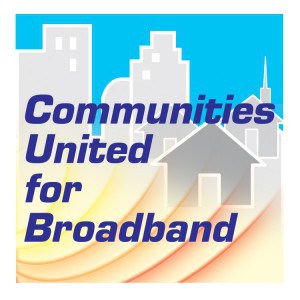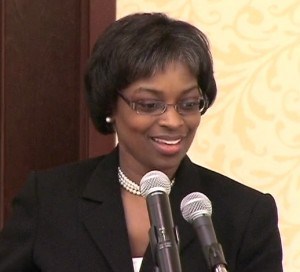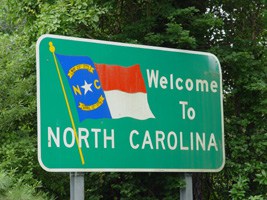FCC Commissioner Mignon Clyburn Speaks in Favor of Municipal Broadband Projects at SEATOA Conference
 I had the pleasure of attending the SouthEast Association of Telecommunications Officers and Advisors (SEATOA) conference this past weekend in beautiful Asheville, North Carolina. I was surrounded by some of the leading visionaries in the fields of next-generation broadband deployment, broadband policy and important Public, Educational, and Government (PEG) access networks.
I had the pleasure of attending the SouthEast Association of Telecommunications Officers and Advisors (SEATOA) conference this past weekend in beautiful Asheville, North Carolina. I was surrounded by some of the leading visionaries in the fields of next-generation broadband deployment, broadband policy and important Public, Educational, and Government (PEG) access networks.
Among those in attendance:
- Kyle Hollifield, representing Bristol Virginia Utilities/BVU OptiNet, a municipally-owned fiber optic broadband provider in Bristol, Virginia;
- Colman Keane, from municipal utility EPB Telecom in Chattanooga, Tennessee;
- Tommy Jacobson from MCNC;
- Ken Fellman from the National Association of Telecommunications Officers and Advisors (NATOA);
- Hunter Goosman from ERC Broadband, which operates a regional fiber optic network in the western Carolinas;
- Brian Bowman, Public Affairs & Marketing Manager of Wilson, North Carolina, home of municipal fiber network Greenlight, and
- Michael Crowell, Broadband Services Director of Salisbury, North Carolina’s forthcoming fiber to the home network Fibrant.
The conference included several informational sessions for those working on broadband projects.
Tom Power, chief of staff for the National Telecommunications and Information Administration (NTIA) and Jessica Zufolo from the Rural Utilities Service at the U.S. Department of Agriculture discussed rounds one and two of the broadband stimulus grant program and lessons learned along the way.
Thomas Koutsky, representing the FCC Broadband Opportunities Initiative, the legendary Jim Baller and FCC Commissioner Mignon Clyburn also spoke about the importance of developing better broadband networks across the country.

FCC Commissioner Mignon Clyburn delivered the keynote address at the SEATOA conference held in Asheville, N.C.
Thomas Koutsky, speaking about the National Broadband Plan said, “The National Broadband Plan is just a plan. It doesn’t do anything by itself, it requires action.” I couldn’t agree more. The National Broadband Plan could culminate in a giant missed opportunity if we do not reach out and demand that our representatives in Washington get on board with a definitive plan to deliver better broadband across the country. Washington is full of studies and recommendations that are little more than words on paper, sitting on a shelf because Americans didn’t demand action to implement them.
I could go on all day about Jim Baller and his inspiration that drives us all to fight for better broadband in America, but I will highlight this quote: “It is a disgrace that every American does not have affordable access.” Baller rallied the crowd with a video clip from Al Pacino’s speech in Any Given Sunday. It’s not difficult to carry Pacino’s message about football to our fight in the broadband arena, and the enthusiasm Baller brings can only be a positive.
Perhaps the most newsworthy event from the conference was a speech from the newest FCC Commissioner, Mignon Clyburn. She gets it. In an amazing 20-minute speech, Clyburn succinctly delivered a message we wish some of our state lawmakers would understand and support:
“Thus, the Plan recommends that Congress clarify that state and local governments should not be restricted from building their own broadband networks. I firmly believe that we need to leverage every resource at our disposal to deploy broadband to all Americans. If local officials have decided that a publicly-owned broadband network is the best way to meet their citizens’ needs, then my view is to help make that happen.
When cities and local governments are prohibited from investing directly in their own broadband networks, citizens may be denied the opportunity to connect with their nation and improve their lives. As a result, local economies likely will suffer. But broadband is not simply about dollars and cents, it is about the educational, health, and social welfare of our communities. Preventing governments from investing in broadband, is counterproductive, and may impede the nation from accomplishing the Plan’s goal of providing broadband access to every American and every community anchor institution.”
Clyburn’s speech clearly illustrates she’s an advocate for consumers and is interested in knocking down barriers that block Americans from enjoying world class broadband service. Clyburn considers the National Broadband Plan a group effort developed by and for the American people, not just a policy document from the FCC. It was truly an uplifting speech that gave me hope positive change in broadband and broadband policies are possible with her presence on the Commission.
[flv width=”540″ height=”380″]http://www.phillipdampier.com/video/CommClyburn.mp4[/flv]
FCC Commissioner Mignon Clyburn delivers the keynote speech at the SEATOA conference. Clyburn goes on record advocating municipally-run broadband projects where communities deem them appropriate. This clip comes courtesy of Communities United For Broadband and you saw it first here on Stop the Cap! (April 27, 2010 — 20 minutes)
(This video is large in size. If playback stops, please pause the video to allow more of the clip to load into the player’s buffer to reduce the chance of stalled playback. If you still experience problems, please Contact Us.)


 Subscribe
Subscribe
